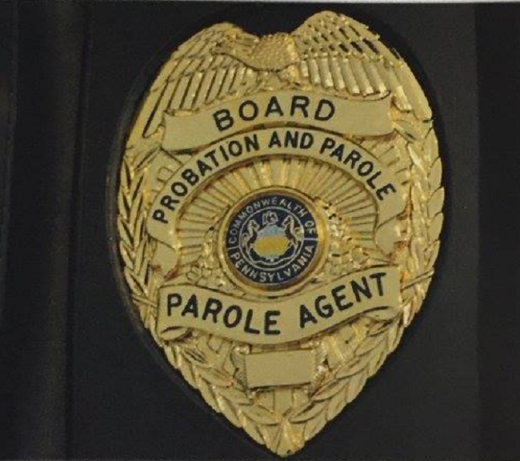By Peter Hall | Pennsylvania Capital-Star
Civil rights and anti-prison groups say a probation reform bill awaiting a vote in the state House would only complicate Pennsylvania’s probation system and could lead to more people being sentenced to jail terms.
The legislation, which passed with bipartisan support in the state Senate in June, is touted to give people serving probationary sentences a clear path out of the justice system.
Pennsylvania’s system can trap people on a decades-long treadmill of court supervision where probation violations, often for minor infractions such as missing a meeting, account for more than half of all people admitted to state prison.
According to the Council of State Governments Justice Center, on any given day there are more than 7,400 people in prison for probation or parole violations at an annual cost to the state of $334 million.
Pennsylvania has the second highest percentage of its population on probation or parole at 2.8%, according to the U.S. Department of Justice Bureau of Justice Statistics.
Issues with Pennsylvania’s probation received national attention in 2017 after a Philadelphia judge sentenced rapper Meek Mill to years in prison for violating the terms of a probationary sentence he had received a decade earlier. In January, then-Gov. Tom Wolf pardoned Mill.
Senate Bill 838, co-sponsored by Sens. Lisa Baker, R-Luzerne; Camera Bartolotta, R-Washington; and Anthony Williams, D-Philadelphia, would require courts to hold probation review conferences for probationers, set criteria for when the conferences must occur, and establish a presumption that probation will end unless the person doesn’t qualify.
It would also allow the review conference to happen earlier if the probationer demonstrates good conduct, such as reaching educational or employment goals.
But a coalition of civil rights and justice reform groups say the bill fails to address core problems with the system, such as the lack of a limit on the length of probation terms, the use of back-to-back probation sentences, and the common practice of sentencing offenders to prison followed by years of probation.
“Every problem with probation in Pennsylvania flows from the original sin that there is no limit on the amount of time that a person can be sentenced to probation,” said Elizabeth Randol, legislative director for the American Civil Liberties Union of Pennsylvania.
It also fails to incorporate changes that reform advocates had pushed for including a process for automatic termination of probation for people who qualify. It also presumes that judges will accept the recommendations of parole officers, according to the ACLU, which filed a memo on behalf of about 50 stakeholders with the House Judiciary Committee urging it to amend or reject the bill.
The ACLU notes that many states reduce the length of probation upon completion of educational or employment goals, but SB 838 merely allows a review conference to be held sooner, offering less of an incentive.
And although it limits the circumstances in which a judge can incarcerate probationers, it still would allow people to be sent to jail for routine violations and for being accused of a new crime.
The memo concludes by stating that the legislation squanders an opportunity to implement meaningful reform and threatens to exacerbate the problems that lead to the probation system’s dysfunction.
House Judiciary Committee Chairman Tim Briggs, D-Montgomery, did not return a call Friday. The Reform Alliance, a probation reform advocacy group headed by Mill that supports the legislation, also did not respond to an interview request.
Greg Rowe, executive director of the Pennsylvania Association of District Attorneys, said the legislation builds on the practices of states where successful early termination programs are in place.
“For those who do the right thing and abide by the rules, their time on probation is going to be reduced in many instances,” Rowe said. “If they achieve certain milestones set forth in the program, their eligibility date will be, in many cases, six months earlier.”
By requiring a statutory review process, courts and probation officials will be able to make more efficient use of time and resources, Rowe said.
“It allows the courts and the probation department to focus on the right people,” he said. “That simplifies everything.”
The legislation was crafted with input from prosecutors, probationers, judges and victims, Rowe said.
But the ACLU noted in its communications to the House Judiciary Committee that other important stakeholders including the Philadelphia Public Defender’s Office, the Public Defender Association of Pennsylvania, the Abolitionist Law Center, and the Amistad Law Project were excluded.
While the faults identified by those groups could affect anyone sentenced to probation, the memo notes people of color are disproportionately involved in the probation system. It also warned that people too poor to pay restitution remain on “administrative probation” indefinitely as long as they still owed victims money.
It also questioned the rapid pace of the bill’s 45-4 passage in the Senate suggesting that it was “an intentional effort to silence stakeholders who are the most involved in the probation process and who stand the most to lose from the damaging effects of this bill.”
“The people who are up to their eyeballs in the system and the biggest stakeholders … were not included and they’re the ones who are saying this bill is no good,” Randol said.
It’s especially perplexing, she said, when those groups have worked so long to pass a reform bill.
Williams first introduced probation reform legislation in 2017 with what Randol described as a simple and straightforward bill that limited probation terms to three years for misdemeanors and five for felonies, banned consecutive probation sentences and split sentences where probation follows prison.
It also provided for automatic termination of probation after 18 months if a person met all of the conditions imposed and had not had a violation.
“If you fix that, many of the other things fix themselves if you don’t have this hamster wheel,” Randol said.









